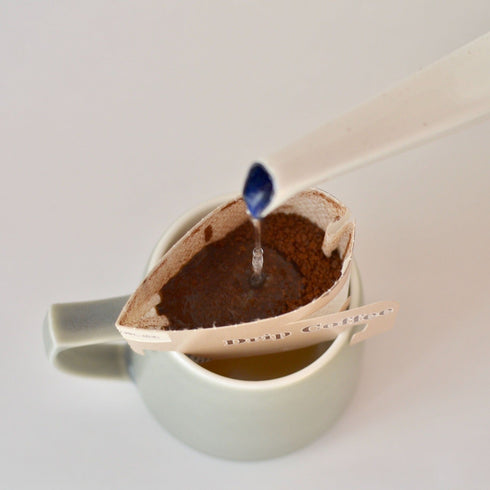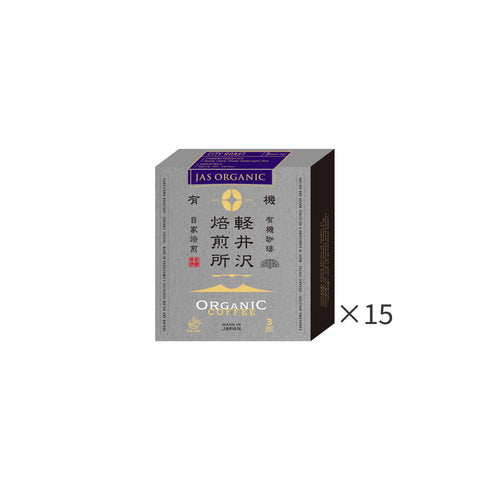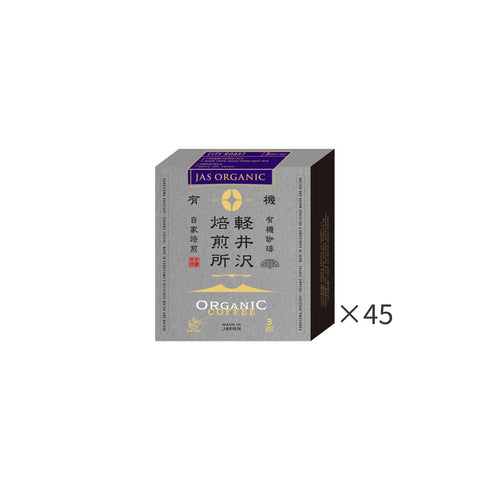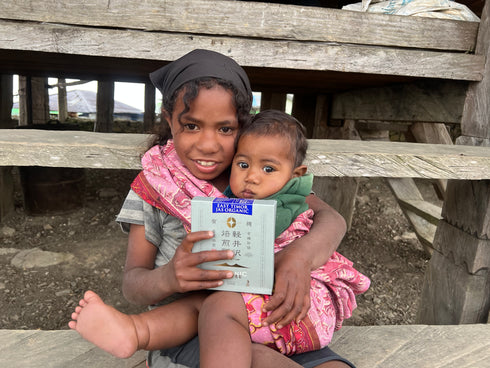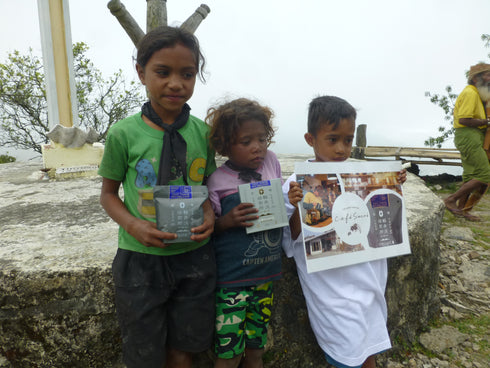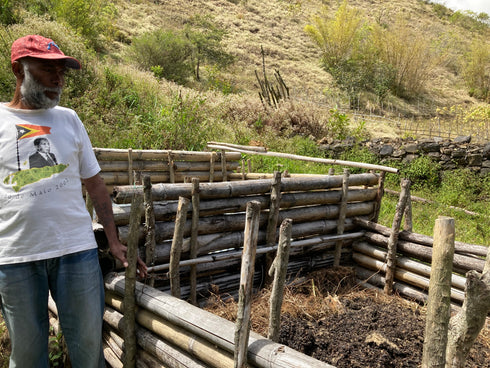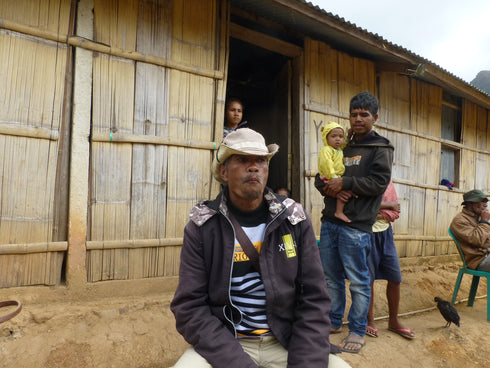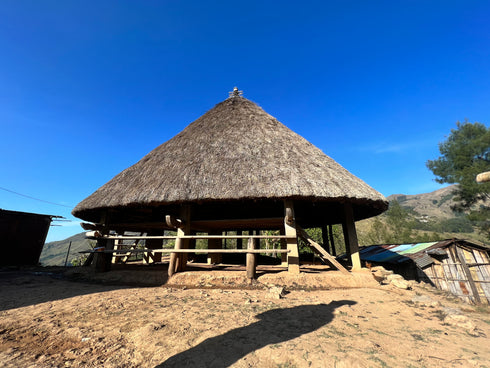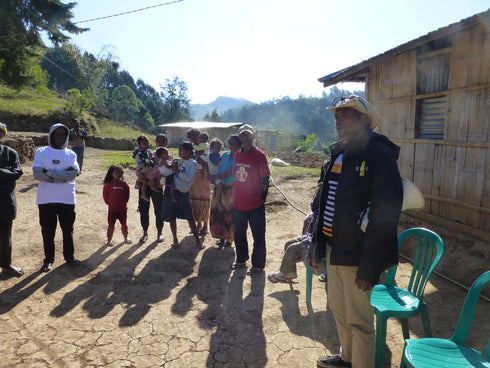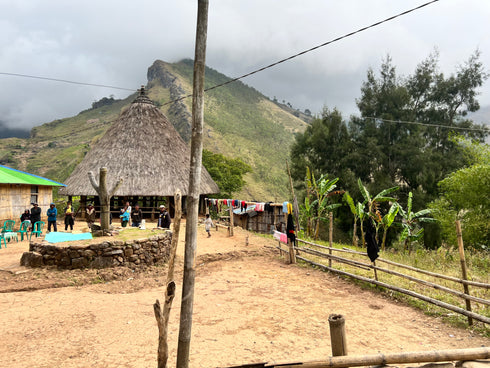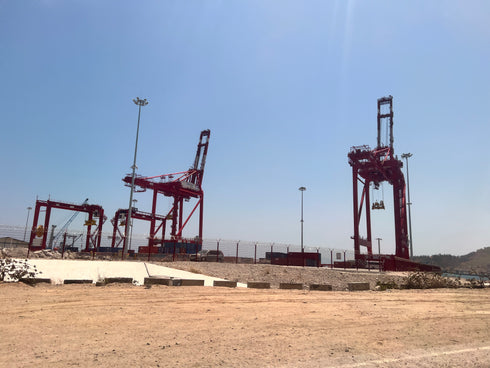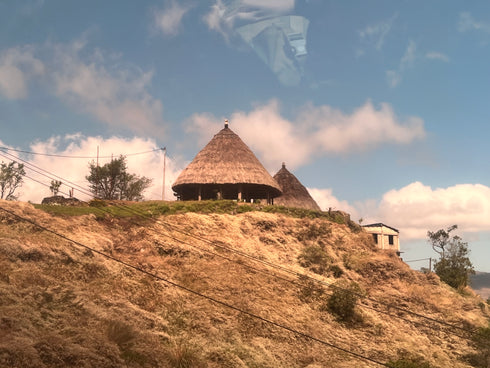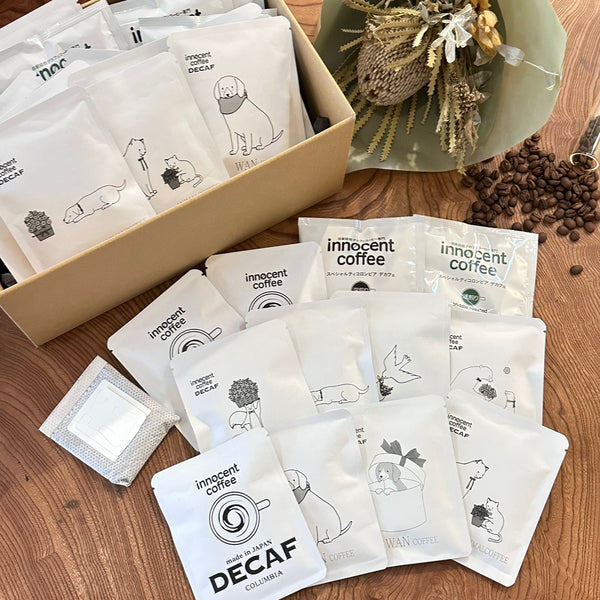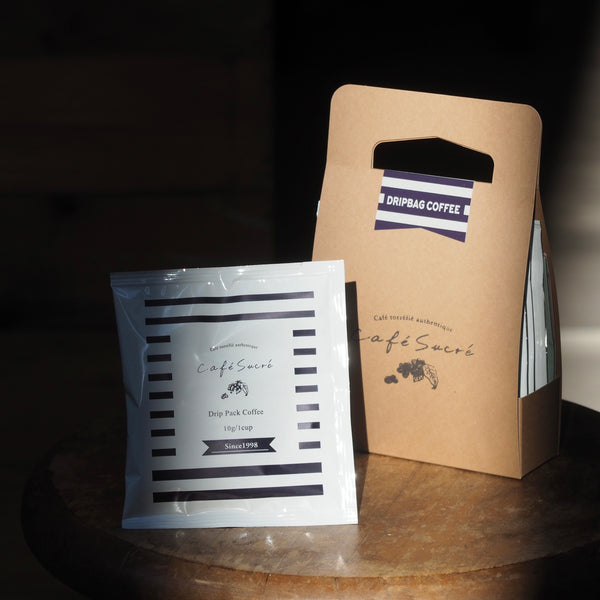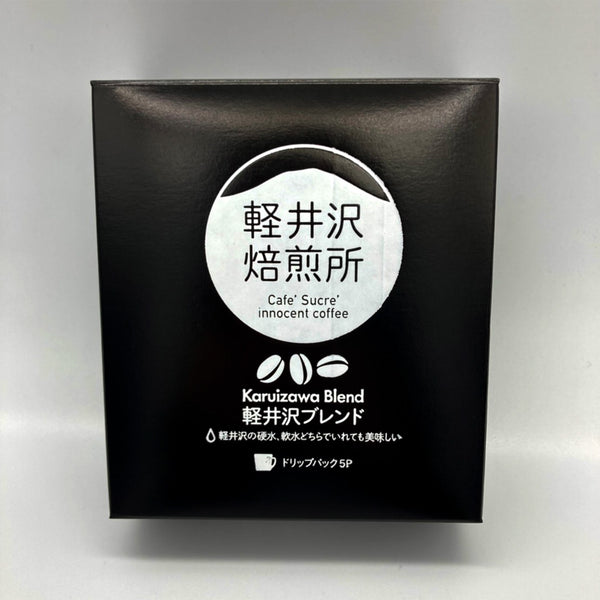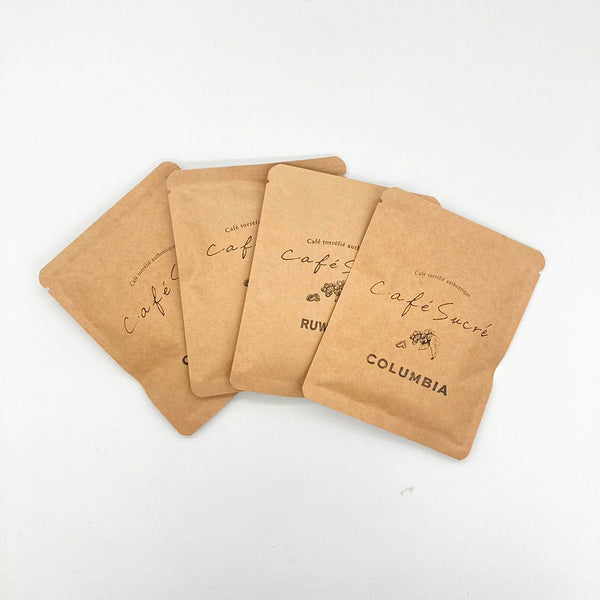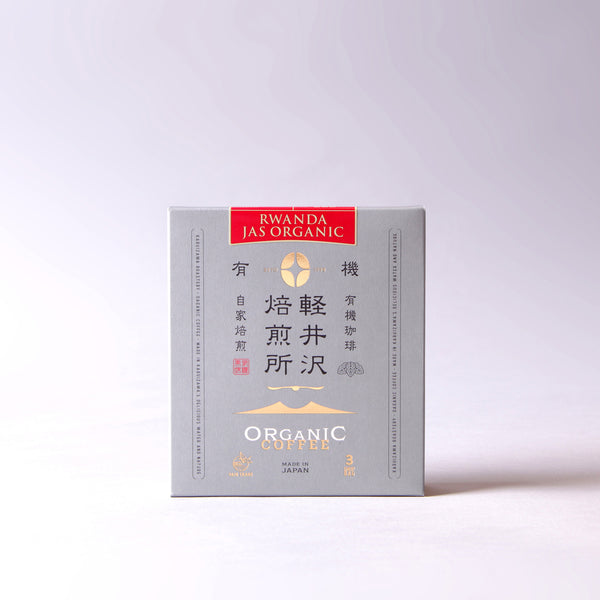JAS Organic Timor-Leste Ko Kamau Drip Bag
Even when you're busy, you can enjoy delicious, luxurious coffee without spending a lot of time.
[Karuizawa Roastery Organic]
We want to protect the Earth, people, and coffee through organic farming, fair trade, and small things!
Will we be able to drink the delicious coffee we drink every day forever? Organic farming protects the land and people's health, and fair trade and support protects our livelihoods.
Learning about local life and unseen challenges, what each of us can do is very small, but it is important to face them without giving up. Let's think about what we can do now and deliver delicious coffee and smiles to the future.
It contains information about the support provided and voices from the local community. It is a long article, but please take the time to read it.
[About the farm]
Maubesi is located in the mountains at an altitude of 1,300 to 1,700 meters, and is an area where the mornings and evenings are very cold compared to the strong sunlight during the day. The area also has a relatively high annual rainfall, making it blessed with the conditions for growing delicious coffee. Coffee cultivation in Timor-Leste began during the Portuguese colonial period, but widespread coffee cultivation in Maubesi only began relatively recently around 1960, and is mostly small-scale cultivation averaging just over one hectare. Maubesi is home to approximately 4,000 households and 25,000 people, most of whom grow coffee. The Maubesi Agricultural Cooperative, or Kocamau for short, has been organized in the Maubesi region.
【taste】
From the Roaster: We French roasted this coffee to bring out the full-bodied taste characteristic of Timor-Leste. It has the sweetness and richness of dark chocolate and roasted nuts. You can feel it even more as it cools.
Taste and Characteristics
Dark chocolate, roasted almonds, brown sugar
Roast level : French roast





Quantity Capacity
10g x 3pcs
[About support]
The nonprofit organization PARCIC began emergency relief activities immediately after the unrest in Timor-Leste in September 1999. After distributing medicines and emergency supplies, it began repairing schools and providing desks and chairs in April 2000 to support the reconstruction effort. In May 2002, when Timor-Leste gained independence, it decided to support the coffee industry, Timor-Leste's only export product. It began organizing a producers' cooperative (now COCAMAU) in Maubesi district, Ainaro prefecture. With the support of a grassroots technical support partner, it built processing plants in six villages, taught processing techniques, and produced green coffee beans of a quality that could stand up to the Japanese market. It imported the beans to Japan as fair trade, contributing to improving the livelihoods of coffee producers.
[About the importing organization]
Zensho Fair Trade Department here
[Local Opinions]
Comparing life in Indonesia to now, he said, "In Indonesia, everything was cheaper. Even a dollar's worth of rice was so heavy that it had to be carried by horse. Meanwhile, the price of coffee dropped and life became harder. It's ironic that Timor-Leste still doesn't have its own currency even after gaining independence." Before joining the cooperative, they had to travel far to sell the coffee cherries they picked, but now it's much easier, as they can process the coffee themselves within their own village. To further develop the cooperative, they would like to try shipping vegetables and beans other than coffee together.
They want to keep the union going until they die and pass it on to their children. One person can't do much, but if we all join forces, we can do something. They say that even though they are struggling now, they don't want to let go of the union for the sake of their children.
[Fair trade support]
By purchasing these beans, you are supporting this cause. In recent years, the effects of climate change have led to poor growth and widespread disease in coffee, forcing many producers to replant their coffee trees with unfamiliar varieties. As a result, as part of our fair trade efforts, we support the expansion of production of varieties that producers are passionate about, and use the proceeds to help producers achieve a stable and sustainable life.
[About Fair Trade]
The dictionary definition of Fair Trade is fair trade.
・A new form of international cooperation that supports the self-reliance and environmental conservation of developing countries by purchasing goods at prices that guarantee fair wages and working conditions to producers in developing countries. (Daijisen)
・A movement to trade traditional handicrafts and agricultural products at fair prices and to support the economic and social independence of people in developing countries who are unfairly exploited by corporations, landlords, etc. (Britannica)
- Initiatives such as Mypedia to continuously import and consume agricultural products and miscellaneous goods from developing countries at fair prices.
* This is not a FLO product. Please feel free to contact us regarding this.
[About JAS Organic]
In 2020, we obtained JAS organic production process manager and organic product packaging company certification. Our organic coffee is certified by JAS organic at every stage of the coffee farming process, and is managed under a consistent system. Not using pesticides is not only safe, but also sustainable for farms and people, and is an important initiative that leads to the SDGs.
[Coffee Crane Project]
This cup of coffee brings a smile to the farm . This organic coffee is not only traded under FairTrade, but it also supports the farms and the people who work there. The delicious coffee we drink every day is made possible by the efforts of the people on the farm. This is an initiative where our smiles bring smiles to the people on the farm.
Let's spread the circle of smiles together.
[Current status of Zensho Fe Trade Department as of August 2023]
This time, Karuizawa Roastery's organic products have returned home.
Please take a look at the photos from that time.
[About Timor-Leste and Zensho Fairtrade]
It is a country where Zensho Fair Trade Department first developed production areas in 2008, and we have been working on it for over 15 years. In recent years, interest from overseas buyers has increased, who have noticed the high quality of Timor-Leste coffee, but in some areas, yields have decreased due to poor weather such as long periods of rain, and the competition to purchase Timor-Leste coffee has intensified. We are very happy that Timor-Leste coffee is becoming more popular around the world, but the reality is that even we, who have been working on it for a long time, are finding it difficult to secure raw beans. In the future, we will strive to further expand and deepen our fair trade efforts so that we can deliver a stable supply of coffee to Japanese consumers.
[About the lives of producers in Timor-Leste]
During this visit, I experienced private lodging at a producers' cooperative for the first time since the initiative began. A few years ago, water facilities were installed in the area through the efforts of Zensho Fair Trade, and water is finally available from the tap, but lifelines such as electricity and gas are still missing. When the sun goes down, the whole family gathers around the Mitsuishi hearth, and the children help their mothers prepare the food while keeping warm. It was pitch black and chilly around the village after sunset, but the large family gathered around the hearth was a space that warmed both body and mind, and it was a valuable experience.
[About Timor-Leste coffee]
Many of the coffee trees in Timor-Leste today are species that were first planted during the colonial period, and trees are becoming old all over the country. To combat this, we are introducing measures such as planting new coffee seedlings and cutting back trees. Our current partner has obtained JAS organic certification, and is cultivating coffee using organic fertilizers such as guava, silk trees, and coffee cherries. When we visited the site, the coffee leaves were lush and green, and we felt that the trees were growing well.



